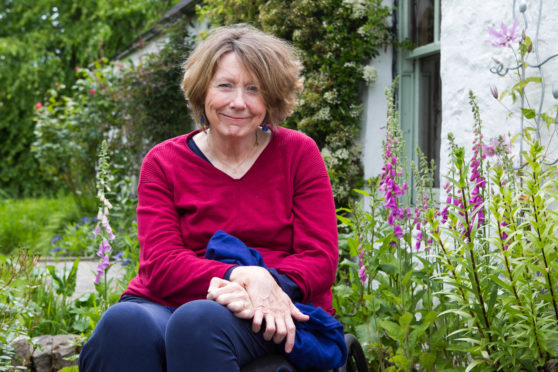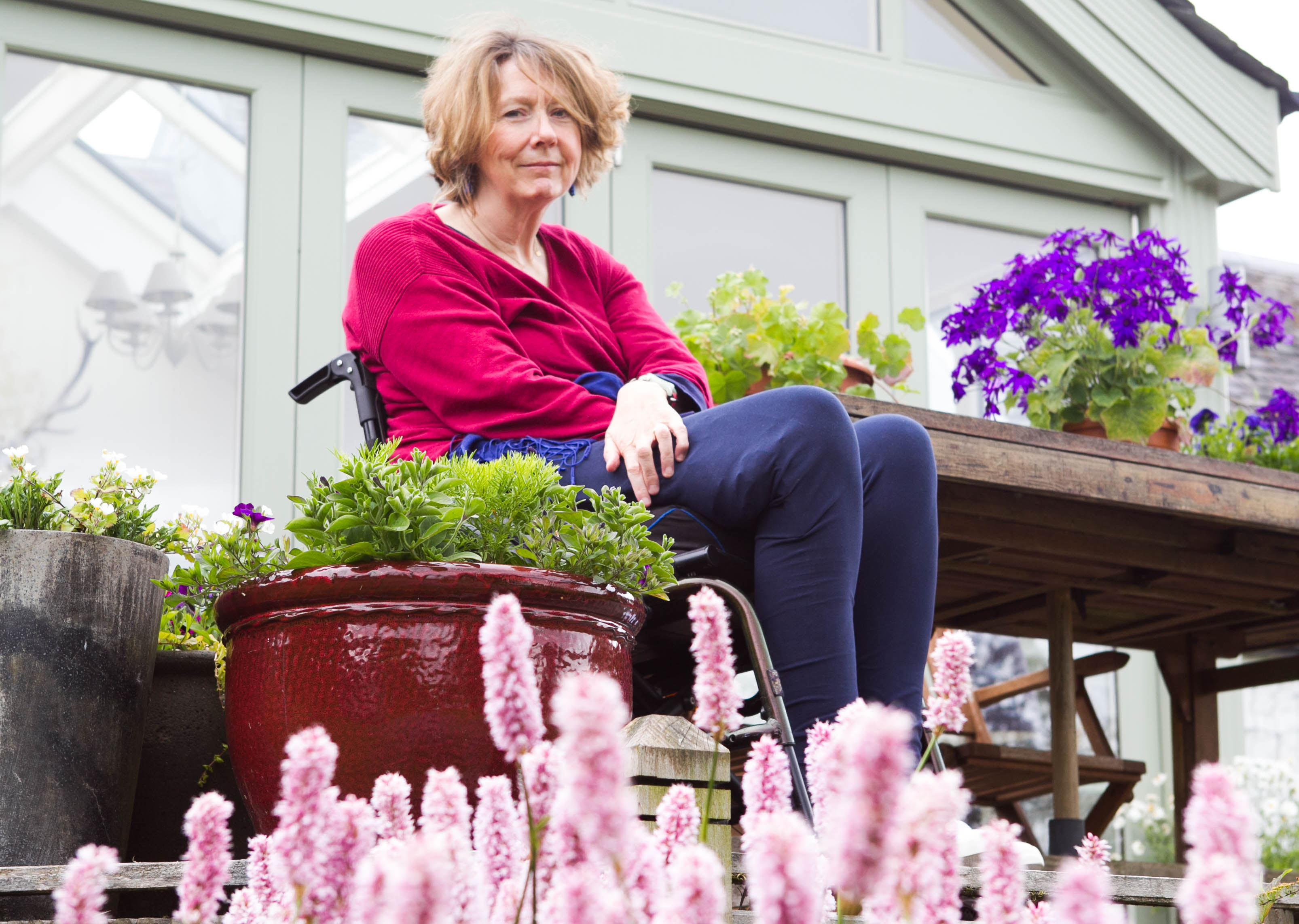
When a life has been transformed in a heartbeat, nine years might seem like an eternity.
For Melanie Reid, however, the events of 2010 still feel like yesterday, affecting her every moment, every day.
Rendered tetraplegic after breaking her neck and fracturing her lower back in a horse-riding accident, Melanie, 61, admits time has helped her accept what happened but it has been no healer.
“Nine years on, I’m still pretty messed up by what happened to me,” said Melanie.
“It’s such a profound change, to lose your body. You have so much to get your head around – a complete change of identity, less power. It’s huge.
“I was pretty arrogant. I thought I didn’t need any help.
“I still haven’t sought professional counselling but I think it wouldn’t be a bad idea to go for it.
“I know a lot of people who go through a spinal injury are on antidepressants. I did for many years. I still go through long tearful patches I try to conceal from everyone.
“I say I’m not coping, but then put the brave face on and go out there and say I don’t need any help. I think there are a lot of people like that.
“I’m fairly stoical and independent and have never been one for seeking help. Perhaps one day.”
There was a psychologist on the specialist spinal unit in Glasgow where Melanie spent almost a year, with staff “very aware of the mental trauma” such an injury inflicts.
“But there’s only so much anyone can do,” said Melanie.
So, the mum of one turned to what she knows best. She writes a popular column for the Times and this year published The World I Fell Out Of, a memoir laying bare her accident.
“I guess it was an innate journalist’s reaction,” she said. “I thought, ‘this is extraordinary… I need to write about it’.
“When I was coming out of the anaesthetic for the plate put into my neck, the anaesthetist was debriefing a nurse, who held my hand.
“My right arm still moved a bit, so I turned her hand as if it was a notebook and pretended to write. I asked the anaesthetist to spell the drug he had mentioned.
“It was only a secondary realisation that writing about it was also a personal lifeline and a psychological release.”
Melanie would like to write about new subjects, but the column is so popular – and important – to so many that she continues to write it.
“I hope in the end it’s an upbeat book. It shows you come through the worst and still find things to love.”
To that end, Melanie, who is married to Dave and mum to grown-up son Dougie, wants to “tell able-bodied people to enjoy what you have and to keep your eyes open for those who don’t have so much, because life isn’t always ideal”.
Before her accident, Melanie’s two dreams were to be a great dressage rider and to speak fluent French – “I blew the first and have no excuses for the second”.
Now her dreams are smaller, but more poignant.
“Day to day, it’s to get through each one and make sure the people I love are content. I like people to be happy.
“And I’m very busy trying to keep my own body healthy. It’s time-consuming looking after a body that doesn’t work.
“Deep down inside, I still feel able-bodied. I still feel and think like that, and part of me feels this isn’t forever, which is irrational.
“Occasionally I look in the mirror and say ‘where are you, tall person?’.
“I wouldn’t like to be tall again. I would stand out so much and people would look at me. I’m quite happy in the chair, I feel invisible. But down inside I’m still there.”
This evening, Melanie will speak at the Borders Book Festival, something that would have terrified her before the accident.
“I was always too nervous to do broadcast journalism. I didn’t have the confidence,” she added. “But I’ve lost a lot of nerves.
“Once you break your neck you think ‘what’s the worst that can happen?’. I might as well go out there and speak and be brave, it’s empowering. I have nothing left to lose.
“Carving out a new life that’s bearable, that’s far more difficult than going out on stage in front of well-intentioned strangers.”
From the book: ‘I knew it was catastrophic, my own internal nuclear explosion’
I was happy, I do remember that, although those were the days when I rarely stopped long enough to appreciate it. Isn’t it always the same old story – that hindsight is the teacher who always arrives too late and says I-told-you-so? We’re always blissfully ignorant and complacent leading up to life-changing events.
So, how to pin down those hateful seconds that I will gnaw regretfully over for the rest of my life? One moment I was cantering towards a small-to-medium-sized cross-country jump, relishing the unity with my own, my very own, lovely handsome chestnut Champion the Wonder Horse, high on the hill and the thrill and the freedom and the wind in my face.
I was hearing the little girl inside me crying out, “Look at me, look at me!” – the next moment I was pinned to the ground with a broken neck and fractured lower back. I was conscious throughout; I knew it was catastrophic.
I said, “Ow!” to myself when my face slammed into the turf, and then I experienced a blinding red flash and felt my whole body suffuse with a most beautiful, intense feeling of warmth; my own internal nuclear explosion; my own terrible mushroom cloud.
In those seconds I was already aware that my life as I knew it had ended. Everything had internalised. The only place where I could survive was in my head. The little girl was dead. Her dreams were atomised. Dust. You stupid, stupid idiot, I heard the voice inside my head. Damn, why did I let this happen to me?
Melanie is patron of a number of charities, including Spinal Research, Association for Continence Advice, and Friends At The End, the Scottish pro-euthanasia organisation.
“I’ve always been pro-choice when it comes to choosing a good death, rather than suffer needlessly when your time is up,” she explained.
“I don’t want to disrespect those who believe the absolute opposite, but this is now a lived experience and it’s my body, my choice, and I wouldn’t want anyone to be denied that right.”
Melanie Reid, Borders Book Festival, Melrose, today, 6.45pm. The World I Fell Out Of is published by HarperCollins.

Enjoy the convenience of having The Sunday Post delivered as a digital ePaper straight to your smartphone, tablet or computer.
Subscribe for only £5.49 a month and enjoy all the benefits of the printed paper as a digital replica.
Subscribe © Chris Austin / DCT Media
© Chris Austin / DCT Media